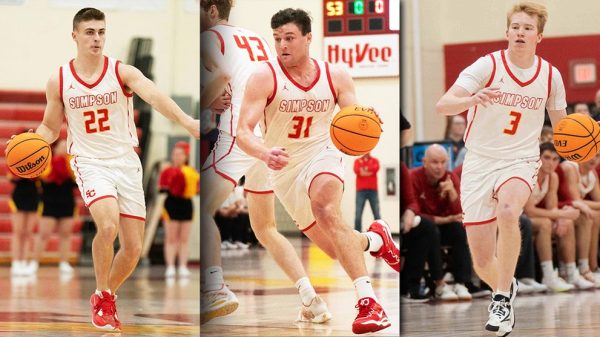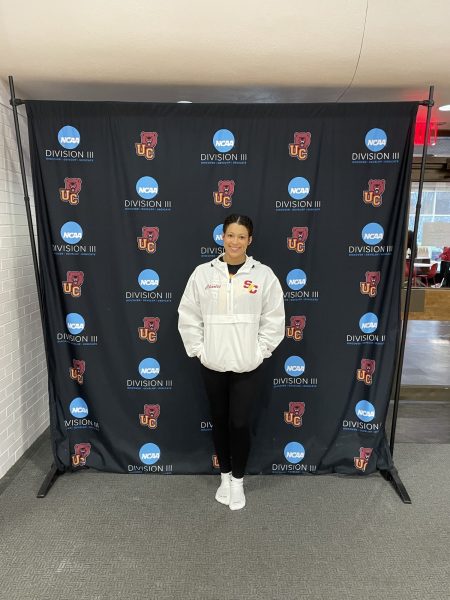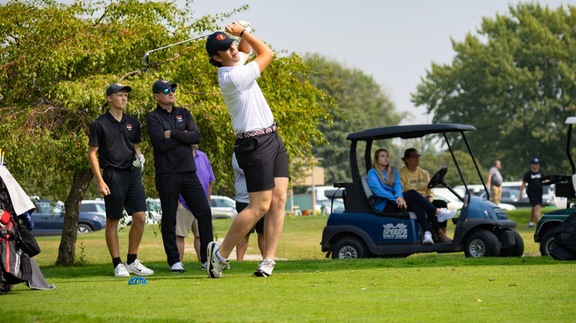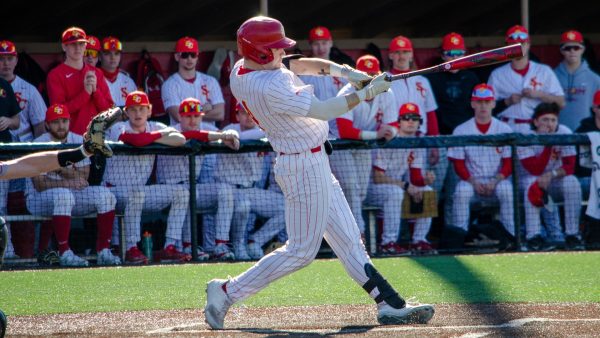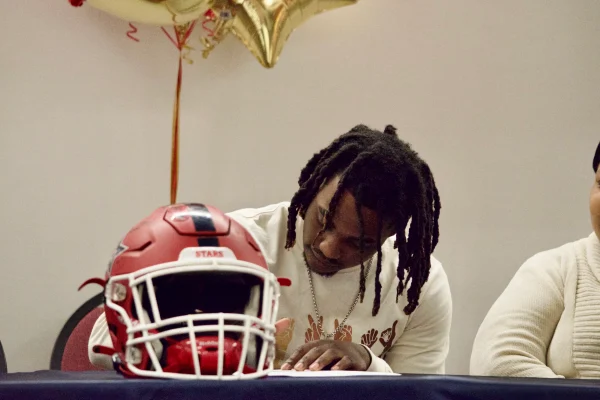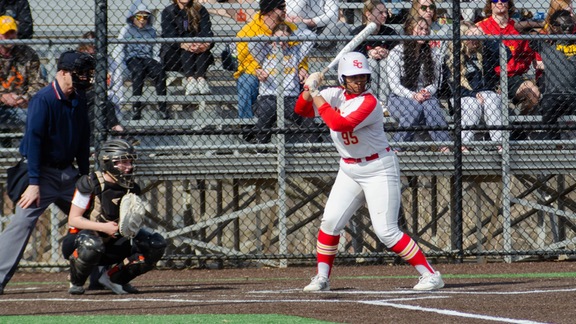Wilson in different arena as D-League coach
November 16, 2012
Former Simpson men’s basketball coach Bruce Wilson went from college to professional as he is entering his third season as assistant coach for the Iowa Energy. He has noticed a lot of differences between the two levels of basketball.
“The ultimate goal of the players I am dealing with right now is to make it to the NBA,” Wilson said. “So basketball is the number one thing in their lives right now. Whereas in division three, like Simpson, there were other things the guys were worried about before basketball.”
The level of play between Division III and the D-League aren’t even on the same pedestal.
“Also the quality of athleticism is not even close. They are so much bigger and stronger and faster and more athletic than the division three guys.”
The difference in athleticism results in different rules, Wilson went on to say. Rules are added such as the defensive three seconds rule to keep defenders from staying in the lane.
“The rules in the NBA are different than college because if we didn’t have those rules it would be really hard for teams to score because of the size and athletic ability of the players.”
“There is not as much movement, it is more about spacing of the court, so that is a little different how you try to score.”
Wilson said that although there are all of these differences between the two levels of play, there are some similarities that he found when talking with current Simpson men’s basketball coach Charles Zanders.
“I was talking with Coach Zanders about defense, and he is using the same type of defense that we also use. We are constantly working on keeping guys from penetrating into the paint and making them shoot jump shots.”
It has taken some adjusting for Wilson in his coaching style. During his first year he had to learn the professional style of play with then head coach Nick Nurse.
Then a new head coach, Kevin Young, was hired during his second year. This meant he had to learn an entire new system under the new coach. This being his second year under Young, he feels he understands the system and how to coach it much better.
“My first year in the D-League, I learned so much,” Wilson said. “The pro game compared to the college game is like comparing chess and checkers, they are both played on the same game board, but they are totally different.
During his first year, the team had a very successful year as Wilson and the Energy won the D-League Championship for the 2010-11 season.
“Then during my second year I learned a whole new system under Coach Young. And now we are doing all of these things in practice again and I already know it all.”
Being in the D-League, Wilson has the opportunity to work with a group of more talented players, but there are some things he misses about coaching at Simpson.
Wilson spent 25 years as head men’s basketball coach at Simpson. He led the Storm to an IIAC Championship three times in his career, and led his 1992 team as far as the Sweet 16.
Wilson, who also graduated from Simpson in 1976, won 341 games as the Storm’s head coach making him the program’s most victorious coach.
“I always miss being on a college campus,” Wilson said. “I liked coaching college guys and the whole collegiate atmosphere of teaching. Also the camaraderie, here we are just our own little entity, in college you have the football team and the baseball team and others who will be rooting for you, now we have to generate that energy ourselves.”
Not being on the campus is one of the differences in the lifestyle of coaching in the D-League. Also traveling is a big part of playing pro ball and Wilson said sometimes it can be hectic.
“On Nov 30, we play at Fort Wayne. The very next day we play Fort Wayne here at home. That is the part of the D-League that is crazy.”
Wilson said he will have a good idea of what to expect from this year’s team after their tune-up scrimmage against the Sioux Falls Skyforce this Saturday. Then the Energy open up the season on Nov. 24 at Sioux Falls. Their first home game is Dec. 1 against the Canton Charge.







